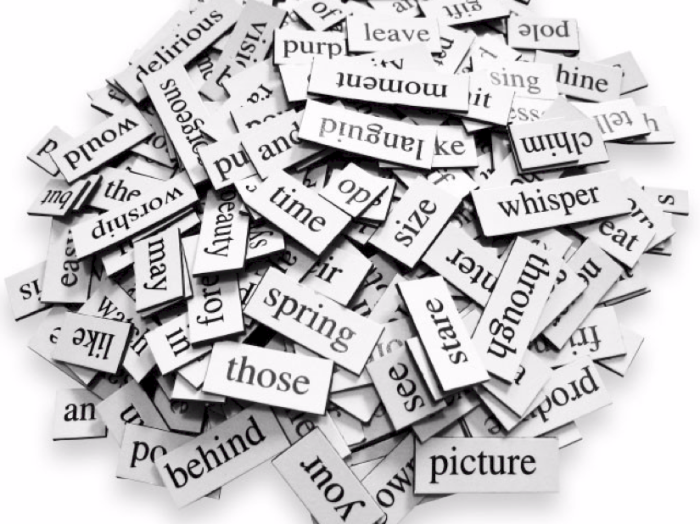As an author, you tend to drown yourself in questions at almost every stage of your career – when you’re wondering if it’s the right path for you; when you realise it’s time for an upgrade; more than ever, when you’re about to start penning down your best-selling book. While it’s natural to sometimes get overwhelmed, know this…it is questions that lead you to your answers.
Here are eleven questions that most frequently cross the minds of budding authors, answered:
How do I know if writing is the right career for me?
Nearly all authors begin their careers with this question. Look for these signs.

Time flies when you write.
Because you enjoy it to the fullest. Few things lift your spirit up like a lovely session of writing…and it often lasts for hours at a stretch.
Books draw you in.
While this doesn’t necessarily qualify you as a writer, the love for reading is something writers of every kind share.
You’re easily inspired.
There are times when you don’t need much to trigger your imagination. Inspiration hits, words flow out and before you know it, you’re weaving a story!
But you aren’t easily pleased with your writing.
Wanting your writing to be flawless doesn’t merely indicate that writing is the right career for you; it also shows that you have the desire and potential to excel.
You love learning new words.
Looking up new words as soon as you read them comes to you naturally – you absolutely adore new additions to your vocabulary.
People admire your writing.
Professional writers’ success depends on how much their readers understand, love and value their words. If you receive appreciation for your writing, keep at it!
What are the qualifications for being an author?
You can find tons of degrees in writing at graduate and post-graduate levels, as well as formal training programs. While they certainly add value to your CV, none of them qualify you as an author. Writing is an art; there’s simply no one-size-fits-all way to master it. While some authors benefit greatly from a classroom environment, there are scores of others who can write brilliant novels or poetry just sitting under trees! Hundreds of painters, musicians as well as authors have made it to the top without college degrees. Writing is also a skill; at the end of the day, your flair, practice and experience count more than anything else.
Should authors read a lot?
Keep reading, and read passionately – this is what most accomplished authors tell aspiring ones. Read all sorts of books, blogs, magazines and newspapers. Putting yourself in the reader’s place gives your mind a much-needed change of perspective. Reading is best way of picking up new words; you don’t merely come across new words like in a dictionary, but can also learn how to use them cleverly. Exploring the works of other authors lets you build and refine your own. Read them slowly and attentively. Study the author’s strategies, delve into the characters and learn from the plot twists. Grasp the intricacies of the author’s style, observe how they use words in their own distinct way… and when inspiration strikes, write.

What are the most common mistakes authors make?
Using long sentences
As an author, your language should be as lucid as possible. Long sentences confuse most readers. As much as possible, break them down.
Using words that sound “sophisticated”
It’s counterproductive to use words to sound “advanced”. It comes across as pretentious, unnatural and often reduces clarity. This is especially so when you don’t completely understand their usage.
Telling, not showing
Instead of writing, “Rita was angry”, let her express her fury through dialogue, action or both. It adds drama and makes your stories interesting.
Building shallow characters
For readers to be able to connect with your stories, build characters they can relate to. Your characters should have a personality, a combination of virtues and vices. And it’s always a good idea to reveal parts of their personality as the story progress.
Not doing enough research
As an author, credibility is crucial – even if you write fiction. When your writing is based on a thorough understanding of relevant cultures, characters, places, science and historical events, it’s much more gripping. Make research an indispensable part of your writing process.
How can I improve myself as an author?
We love this one. It’s among the most important questions you could ask in your career. Writing is a skill; there is not aspect of yourself, as a writer, that you cannot improve.
Read
Scroll up to question three.
Spot your spots
Begin with introspection. Every author has strengths and weak spots. What are yours? List them down. Then, pick each weakness and practice, practice, practice! Pick each of your strengths and develop it more. Make sure you focus on one thing at a time. And when it comes to benchmarks, all that matters is how far you’ve come from yesterday.
Find your voice
With a voice of your own, you’re authentic and distinct. While it’s something that writers develop as they grow, it’s a fantastic idea to keep an eye on your tone and style early on. This makes you more in touch with yourself as an author.
Seek Inspiration
Inspiration fuels an author’s mind. It’s what keeps you going in the toughest times of your writing career. With an open mind, figure out what makes you click. And don’t wait for it; seek it everywhere you can – in nature, people, books, movies, on the Internet, in friends, experiences, places, love, science…
Look at it as a job
If you want your writing to work, treat it like work. This means following a routine, grabbing every opportunity to learn more, getting guidance through books and blogs, and becoming more disciplined.
Write
You’ll only keep getting better as you write!

What process should I follow while writing my book?
Most writers follow the four-step process of developing their ideas, writing their books, revising and finally, editing.
Develop your ideas
This is when you lay down the foundations for your book. Begin by putting down all your thoughts and ideas (without judging). Consider it your personal brainstorm. Next, select your best ideas and flesh them out. Let your imagination run wild. Then, look for connections and narrow your options down to the ones that fit together best.
Write
When you write your first draft, let the words flow naturally. Pick a place that gets you “in the zone”. Reserve the most productive times of your day for writing your book, and write at these times everyday. This helps you build a routine and maintain rhythm.
Revise
Time to be your harshest critic. This stage is where you make major transformations by adding, deleting and rearranging your content. Check, re-check and ponder over anything that catches your attention. When you’re satisfied with how your book looks, go out and ask for opinions.
Edit
It’s best to edit your book yourself, and then by a professional. Carefully eye every detail. You can break sentences down, change their structure, rewrite a whole lot and polish your book up in every way possible. Do at least three rounds of editing before you’re ready for publishing.
P.S: Feel free to print this out.
What should I figure out before I begin writing my novel?
Ask yourself some basic questions:
- Why am I writing this book?
- What is the main idea?
- What is the theme?
- What is my tone of voice?
- What is my point of view in the story?
- Why should my readers appreciate it?
Then, put together your story’s building blocks. Write down:
- When and where your story takes place
- Sketches of your main characters
- Sketches of the supporting characters
- Detailed descriptions of your protagonist, antagonist and their goals
- The points of conflict
- The stakes: The things and people your protagonist considers most precious and risks losing
- How the setting influences your characters
It’s common to feel muddled before you begin writing your novel; your thoughts and ideas are raw. Once you write these down, you’ll have a clear idea of your core concept. Rewrite them as many times as you need to, and when you’re confident, begin writing.

How can I make my characters more interesting and unique?
Characters are crucial. When writing fiction, starting from scratch and building characters who exude personality can be a daunting task. Do this:
Build backgrounds
When they’re from various walks of life, characters naturally take on personalities of their own. Let them hail from unrelated parts of the world, have different pasts, lead contrasting lifestyles, develop opposing world-views and belong to separate social classes.
Motivate your characters
Motivations form the basis for differences. Characters driven by greed act differently from those driven by love. Get into the details; personalities will bloom.
Assign voices
Speech is a wonderful way of creating dissimilarities among characters; assign a unique voice to each of them. Let one be eloquent, soft spoken and polite, and another, harsh and crude. Let their language reflect their intelligence, motivations, backgrounds, weaknesses and virtues. Give them favourite words, expressions or figures of speech. Use slang and dialects. Don’t forget non-verbal cues like body posture, expressions and gestures – they convey personality excellently.
Is it important to have a large vocabulary?
As an author, you need to connect with your readers. Use language they understand best, which often means writing simple sentences made of simple words. Most words can be replaced by easier-to-understand ones that express exactly the same thing. But when it comes to choosing between a word that is plain and another that paints a richer picture and evokes stronger emotions, pick the latter.
With a larger vocabulary, you’ll have much more choice between simple words and words that are simply more apt. You see, authors must build their vocabulary not to throw around lesser-used words, but to be able to narrate their stories more vividly by selecting the best from a vast range of words.

I am more comfortable with writing in my own mother tongue, which is not English. Can I still become a popular author?
The task of an author is to tell stories in the most clear, compelling and mesmerising manner. You’re likely to do this best in the language you’re most comfortable with. A large number of Indian writers rose to fame with books, songs and poems that they wrote in their own languages.
In today’s world, language is never a barrier when it comes to writing. Plus, there’s a growing market for books in regional languages like Marathi and Bengali. You can stick to your language and later, have your book professionally translated to English. This way, you’ll write better books and be known among a wider audience – both of which increase your chances of becoming popular.
How can I build my brand as an author?
Building your brand as an author takes a lot less as compared to the old days. Network offline as well as online, start a blog and share your work with the world. Talk about it with your friends and post about it on social media. Most importantly, get published!
Contributed by Christina Bird for Tangerine Online Reputation Management

 +91 120 455 3583, +91 9717835777
+91 120 455 3583, +91 9717835777
